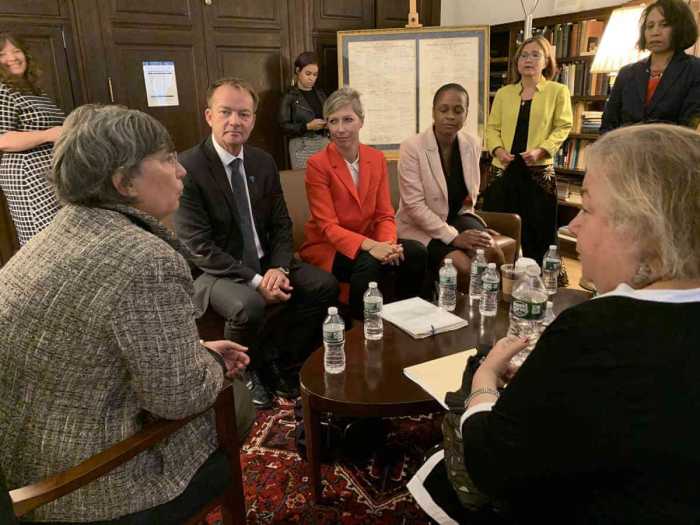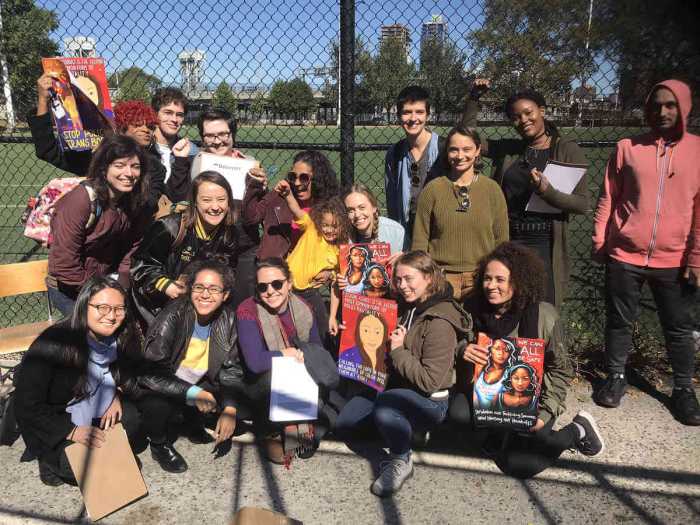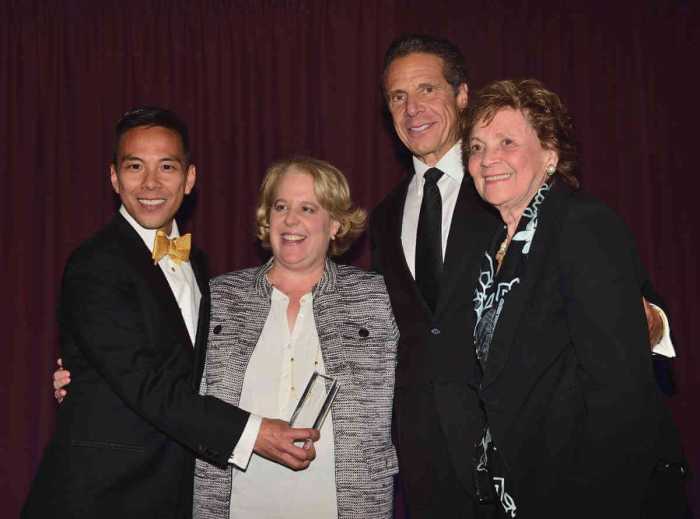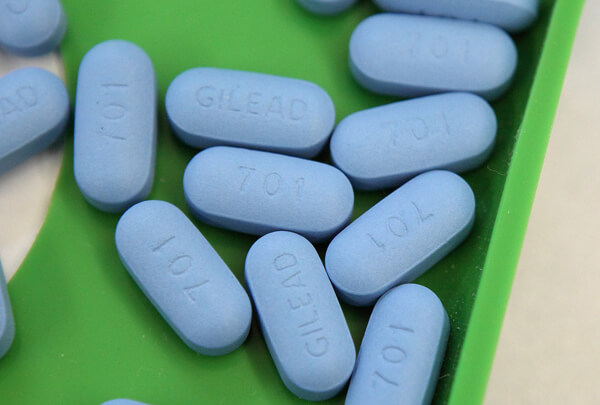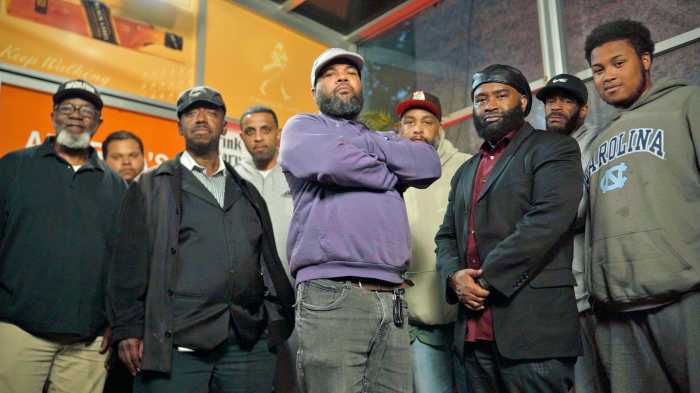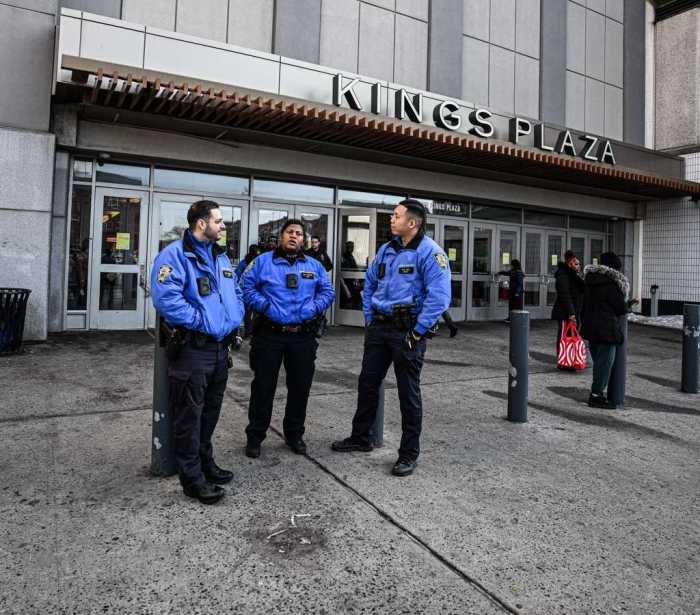Gay Men’s Health Crisis (GMHC) and the Callen-Lorde Community Health Center are pursuing a merger to combine the unique healthcare and social services offered by each organization.
GMHC CEO Kelsey Louie told staffers in an August 8 email obtained by Gay City News that the potential partnership is in line with his organization’s strategy to incorporate healthcare options that would bring “a full continuum of services for our clients and helping to ensure GMHC’s long-term sustainability.”
Compared to GMHC’s HIV/ AIDS-specific focus, Callen-Lorde offers a broader range of services and specifically caters to LGBTQ folks. GMHC originally served as a key resource for gay men living with HIV/ AIDS during the onset of the epidemic in the early 1980s, hence its name, but has since expanded to serve a wider demographic. Louie noted that even though Callen-Lorde’s focus is on serving the LGBTQ population, its services are, like GMHC’s, available to all New Yorkers.
This potential collaboration signals GMHC’s aim to broaden its operation and demonstrate to potential funders a fuller range of capabilities.
GMHC had considered creating its own medical clinic and “co-locating” the clinic in its own space before setting its sights on a merger with an organization already certified as a Federally Qualified Health Center.
“After reviewing our options, we think that collaborating with an existing agency is the fastest and most cost-effective route,” Louie wrote in the email.
Louie noted that regardless of whether a full merger happens, other joint efforts between the two organizations are possible. He stated that Callen-Lorde is interested in bringing its mental health clinic to the eighth floor of GMHC’s location at 307 West 38 Street.
Should the merger be finalized, a Callen-Lorde spokesperson told Gay City News, both sides expect that a transition would begin in late 2020 or early 2021.
The merger could bring significant changes to the two organizations, including potential job losses and a rebranded name. Louie told employees it is “too early to tell” whether to expect employment shakeups and noted that the name of any new organization would seek to honor “the legacy” of both GMHC and Callen-Lorde.
In a joint written statement provided to Gay City News, both organizations explained how they envision the partnership improving services for clients.
“Integrating Callen-Lorde’s healthcare services with the social services GMHC provides would help meet our communities’ needs more comprehensively,” spokespeople for both organizations noted. “By sharing our resources, we believe that both organizations could be stronger and more effective — in the care of our communities, in advocacy work, in fundraising, and in our efforts to achieve health justice.”
Callen-Lorde also sent an email to staffers, according to Louie, but attempts to obtain a copy of that letter were unsuccessful.
The likelihood of such a partnership coming to fruition is not clear and won’t be until discussions advance past preliminary stages. Both organizations told Gay City News they have discussed the deal for months and that they are “now undergoing a due diligence process to analyze and explore if this partnership would make sense from a regulatory, financial, or operational perspective.”
In his email to staffers, Louie said, “If the financials of a merger don’t work, this discussion will not continue.”
GMHC’s CEO invoking of “long-term sustainability” in his email to employees raises questions about the stability of the non-profit moving forward as a stand-alone. GMHC noted that regardless of whether or not a partnership is finalized, “both organizations are operating on parallel tracks that do not involve a merger, understanding that this process is still in the beginning stages.”
Louie also addressed a series of questions that could emerge from staffers and others with an interest in the partnership. Acknowledging that Callen-Lorde’s staffers are currently unionized, he stated that it is not yet clear whether GMHC staffers would then join Callen-Lorde’s folks in that union, saying, “that would entirely depend on how a merger or strategic partnership was structured.”
GMHC’s Consumer Advisory Board, which advocates for clients at the organization, met with Louie to discuss the proposal and the potential impact on clients, but details of that meeting were not disclosed. Louie did, however, state, “If this merger goes through, our clients will be able to have direct healthcare access as existing clients of GMHC.”
Recent years have seen a number of mergers and other cooperating arrangements between health-related service providers in New York. GMHC previously established a strategic partnership with ACRIA, an HIV research, education, and prevention organization, while other joint efforts have been forged between Bailey House and Housing Works, and two Bronx organizations, BOOM!Health and Argus Community, Inc.



